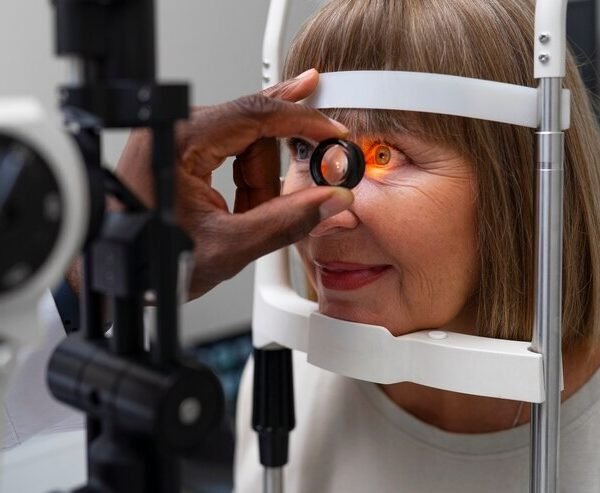The Importance of Mindfulness and Meditation for Overall Wellness
In today’s fast-paced world, practices that promote mindfulness and meditation are becoming increasingly popular as people search for ways to find balance, reduce stress, and enhance their overall well-being. Mindfulness and meditation offer a variety of benefits that can improve our psychological, emotional, and physical health. By learning to be fully present and aware, we can gain greater insight into ourselves, increase resilience, and foster a sense of inner peace. Exploring mindfulness and meditation can be transformative steps on the journey toward overall wellness.
Introduction to Mindfulness and Meditation
Mindfulness is the practice of bringing full awareness and attention to our present experiences, without judgment or reaction. It involves being fully engaged in the present moment, with openness and curiosity. Meditation is a more formal practice that builds mindfulness, often by focusing on a specific anchor like the breath, a mantra, visualization, or guided practice. Together, mindfulness and meditation help ground us in the here and now, rather than getting lost in regrets about the past or worries about the future.
In recent years, mindfulness and meditation have become very popular for their wide array of benefits. Countless studies demonstrate their positive impacts on mental, emotional, and physical well-being. These practices have gone mainstream, with apps, online courses, and videos that make mindfulness and meditation easy to integrate into even the busiest lifestyle. Many workplaces now offer mindfulness and meditation programs to help employees manage stress, increase focus, and cultivate inner wellness.
Understanding the Benefits of Mindfulness and Meditation
Research has found that practicing mindfulness and meditation offers profound benefits that enhance overall well-being in multiple ways. Here are some of the evidence-based advantages:
- Decreased stress and anxiety: Mindfulness and meditation calm the body’s stress response. This promotes relaxation, reduces worry and rumination, and provides skills for managing challenging emotions and experiences.
- Increased focus and concentration: Mindful awareness enhances our ability to concentrate, direct attention, and tune out distractions. Meditation literally rewires the brain to improve cognitive function.
- Improved emotional regulation: Being present helps us better understand our emotions and respond thoughtfully rather than reactively. Mindfulness and meditation build “emotional intelligence.”
- Deeper self-knowledge: With mindful awareness we gain insight into our own patterns of thought, behavior, values and beliefs. This self-understanding lays the foundation for personal growth.
- Increased creativity: Mindfulness and meditation help get us out of habitual thought patterns. With open and expanded awareness, we can access more inventive ideas and solutions.
- Promotion of empathy: Being mindfully aware makes us more attuned to ourselves and to others. This nurtures compassion, kindness, forgiveness, and connection.
- Support for physical healing: Mindfulness and meditation activate the body’s relaxation response. This can help relieve headaches, lower blood pressure, strengthen the immune system, and aid various healing processes.
Mindfulness and Stress Reduction
In our busy modern lives, many of us contend with high stress levels on a daily basis. The chronic activation of the body’s stress response has been linked to numerous health problems when prolonged over time. Practicing mindfulness and meditation can help counteract the effects of stress in several ways:
- Quieting the mind’s incessant worrying, planning and analyzing helps reduce cognitive stress and brings calming awareness to our racing thoughts.
- Focusing awareness on the present moment rather than past regrets or future concerns minimizes rumination and anxiety.
- Observing thoughts and emotions without judgment lessens reactivity and introduces pause between a stressor and our response.
- Mindful breathing engages the parasympathetic nervous system and triggers relaxation. Slow, deep breaths signal our nervous system that all is well.
- Body scans and progressive muscle relaxation help release physical tension and calm the body’s stress reactions.
- Regular, daily mindfulness and meditation practices strengthen the neural pathways of relaxation, equanimity, and focused attention.
Numerous studies have confirmed that ongoing mindfulness and meditation practice helps reduce psychological distress, decrease cortisol levels, improve heart rate variability, and support effective stress management.
Impact of Mindfulness and Meditation on Physical Health
In addition to benefits like decreased anxiety and improved concentration, mindfulness and meditation can also positively impact physical health in a variety of ways:
- Enhanced immune function: Mindfulness and meditation have been shown to increase activity of disease-fighting blood cells and antibodies. One study found an average 50 percent boost in flu vaccine effectiveness among subjects who practiced mindfulness meditation.
- Reduced inflammation: Mindfulness practices reduce inflammatory responses that are linked to chronic illnesses like heart disease, diabetes, cancer, and autoimmune disorders. Less inflammation may explain meditation’s protective effects.
- Decreased pain: Mindfulness meditation can minimize pain signals through the brain’s pain center. It also helps practitioners mentally decouple the physical sensations from the emotional response to perceived pain.
- Lower blood pressure: Mindfulness and meditation elicit the body’s relaxation response, slowing heart rate and breathing which in turn lowers blood pressure. This may reduce hypertension risk.
- Improved sleep: Mindfulness practices have been shown to improve both sleep onset and sleep duration. Better sleep strengthens the immune system, improves cognition, and enables better stress resilience.
- Healthy aging: Mindfulness and meditation may protect cellular structures and DNA from factors that accelerate aging. One study found experienced meditators had biological markers indicating 7-12 years younger than their chronological age!
The physicians and researchers who authored that study stated that mindfulness practices “provide an effective intervention to reduce aging-related morbidity and mortality.”
Incorporating Mindfulness and Meditation into Daily Life
For those new to mindfulness and meditation, consider starting slowly by choosing one simple practice to incorporate into your daily routine:
- Mindful eating: When enjoying a snack or meal, pause to fully focus on the flavors, textures, scents, sounds, and overall experience of eating. Appreciate the nourishment you are providing your body.
- Mindful walking: While walking from place to place, turn off any music or podcasts and focus fully on the sensations of walking. Notice each footstep, the rhythm of your breath, and the sights/sounds around you.
- Morning mindfulness: Before getting out of bed, take 5 minutes to scan your body and mind. Notice any tightness, pains, worries, or other sensations without judging them. Set your intention to meet the day with open awareness.
- Mindful breaks: At various points in your day, pause to pay attention to your breathing. Observe each inhale and exhale, releasing any tension or stress. This quick 1-2 minute reset helps clear and focus the mind.
Don’t worry about “getting it right.” The key is consistent daily practice for even short periods of time. Over time, mindfulness and meditation get easier as the mind acclimates to focused presence.
Mindfulness, Meditation, and Mental Health
Along with their benefits for physical wellness, mindfulness and meditation practices also support mental health and emotional resilience. Studies have shown meditation and mindfulness-based interventions can help:
- Treat anxiety disorders and reduce anxiety levels
- Alleviate symptoms of depression and prevent depressive relapse
- Reduce trauma symptoms and support PTSD treatment
- Improve mood and psychological well-being
- Increase positive emotions and life satisfaction
- Reduce addictive behaviors and substance use
- Promote healthy self-concept and self-compassion
Mindfulness itself is often described as a form of mental training. The practices build skills that strengthen inner resources for meeting life’s challenges with flexibility and equanimity. Over time, mindfulness and meditation can foster a deep sense of calm, gratitude, and wisdom.
Regular mindfulness meditation has even been shown to increase gray matter volume in brain regions linked to emotion regulation, positive emotions, and self-awareness. These changes in brain structure demonstrate the powerful neuroplasticity-enhancing effects of meditation.
Mindfulness and Meditation Resources
Here are some excellent resources for those looking to begin or strengthen a mindfulness or meditation practice:
- Apps: Calm, Headspace, Insight Timer, and Ten Percent Happier all offer guided meditations, teachings, music and timers. Most have free content for beginners.
- Online programs: Many meditation teachers offer virtual courses on mindfulness fundamentals, specific techniques like lovingkindness, and integration into daily life.
- Books: Jon Kabat-Zinn’s “Wherever You Go There You Are” and Thich Nhat Hanh’s “Peace Is Every Step” are considered classics for good reason!
- In person classes: Local community centers, yoga studios, hospitals, and retreat centers often hold group meditation classes, both in-person and virtual.
- Mental health professionals: Many therapists now provide mindfulness training or meditation-based approaches like Acceptance and Commitment Therapy (ACT) and Mindfulness-Based Stress Reduction (MBSR).
Start wherever you feel comfortable, but don’t be afraid to try new styles and find what resonates best for you. Regular practice is key, so choose techniques you actually look forward to doing each day.
Conclusion
Incorporating mindfulness and meditation into everyday life has the potential to profoundly enhance overall wellness and quality of life. These practices offer a wide array of evidence-based benefits for both physical and mental health when done consistently over time. Mindfulness and meditation help reduce stress, increase focus and creativity, strengthen self-knowledge, promote empathy and connection, and foster deeper meaning and joy.
While the inner journey is unique and personal for each individual, mindfulness and meditation generally bring greater awareness, insight, and inner peace. In our chaotic modern world that often pulls us in so many directions at once, these practices can center and ground us. They allow us to tune out distractions and be fully present. Beginning or deepening a mindfulness and meditation practice is one of the most nurturing acts of self-care we can take for overall balance, health, and well-being.











